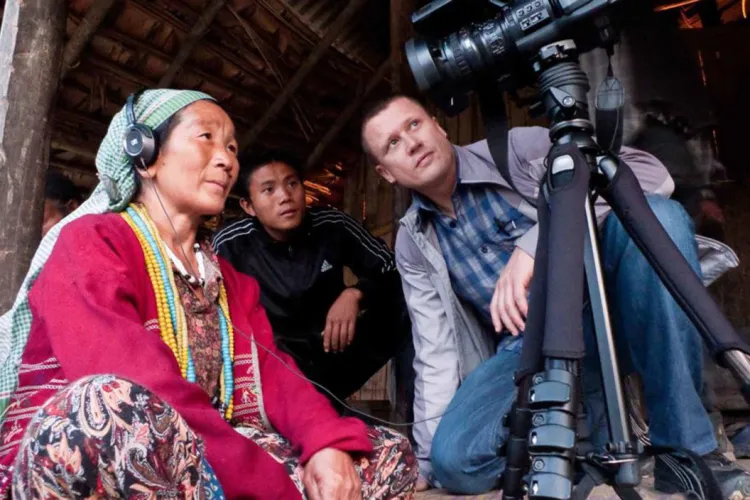Linguist K. David Harrison Works to Document, Revitalize Endangered Languages

Abamu Degio and Anthony Degio, speakers of the Koro language, with linguist David Harrison. Photo by Jeremy Fahringer '06
Associate Provost for Academic Programs and Professor of Linguistics K. David Harrison's work to preserve endangered continues to draw wide recognition.
In March, Harrison will deliver the opening keynote address at the TESOL 2019 International Convention & English Language Expo, the largest gathering of English as a foreign language educators and professionals. In his talk, he will provide insight into the nearly one-half of the world’s languages that are in danger of going extinct by the end of the century, the global consequences of their disappearance, and efforts to save them through technology and activism.
Harrison's decade-long work to document the Koro Aka language in northern India is featured in SAPIENS, a digital magazine devoted to making anthropology accessible to the general public. All Koro Aka speakers share another language, Hruso Aka, though it is only distantly related. However, with only 1,000 speakers and few under age 20, Koro Aka may already be at risk of extinction.
“People don’t fully appreciate the vast body of knowledge contained within any language,” says Harrison. “What does Koro Aka have to say that we never knew? These languages have a contribution to make.”
Harrison is a National Geographic Fellow and co-director of the National Geographic Society’s Enduring Voices project, which aims to prevent language extinction by studying and chronicling at-risk tongues. In his laboratory at Swarthmore, he works with students and speakers of minority and endangered languages to create Talking Dictionaries and other digital tools. Harrison is also the co-founder and research director of the nonprofit Living Tongues Institute for Endangered Languages, and author of When Languages Die: The Extinction of the World’s Languages and the Erosion of Human Knowledge (Oxford University Press, 2007) and numerous articles.



